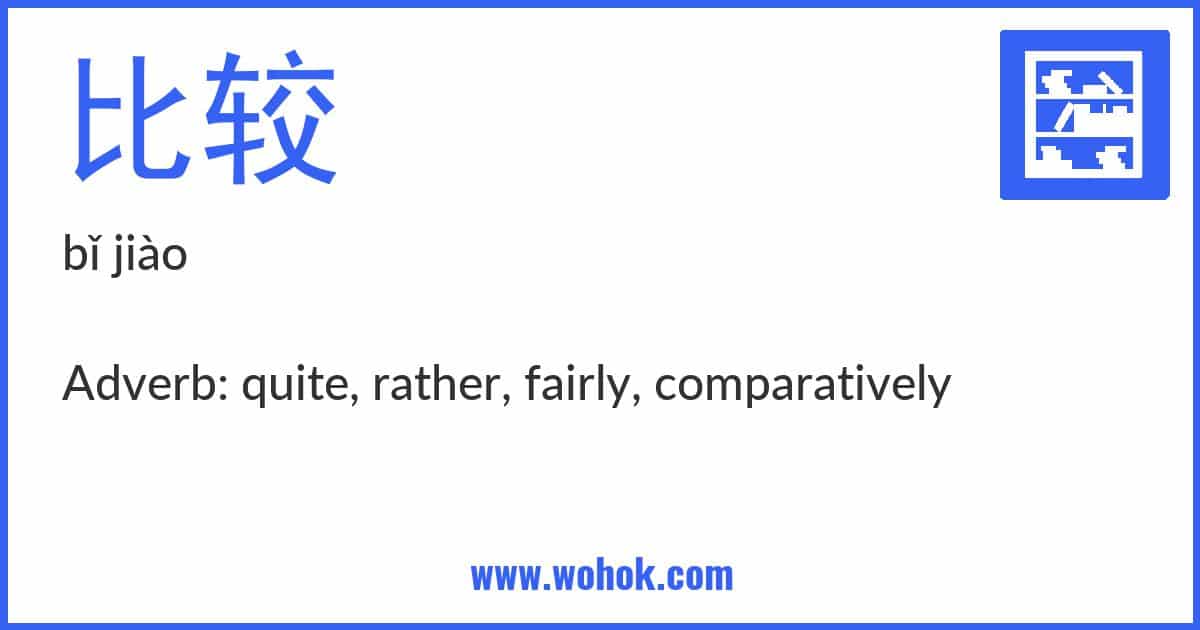The Chinese word 比较 means “comparison” or “relatively”. It is often used to compare two or more things or to express a degree of difference between them. 比较 can also be used to indicate a preference or tendency towards one thing over another, such as “我比较喜欢吃中餐” which means “I tend to prefer eating Chinese food”.
Translation
Adverb: quite, rather, fairly, comparatively
Pronunciation
Example Sentences
| Chinese | Pinyin | Engish |
|---|---|---|
| 我们可以比较一下这两个手机的功能 | wǒmen kěyǐ bǐjiào yīxià zhè liǎng gè shǒujī de gōngnéng | We can compare the functions of these two phones |
| 他们的成绩比较接近 | tāmen de chéngjì bǐjiào jiējìn | Their grades are relatively close |
| 这个菜的味道比较辣 | zhège cài de wèidào bǐjiào là | This dish is relatively spicy |
| 我觉得这个方案比较可行 | wǒ juédé zhège fāng’àn bǐjiào kěxíng | I think this plan is relatively feasible |
| 这本书比较难读 | zhè běn shū bǐjiào nán dú | This book is relatively difficult to read |
| 我们需要比较不同的选项 | wǒmen xūyào bǐjiào bùtóng de xuǎnxiàng | We need to compare different options |
| 这个地方比较安静 | zhège dìfāng bǐjiào ānjìng | This place is relatively quiet |
| 我们需要比较不同的价格 | wǒmen xūyào bǐjiào bùtóng de jiàgé | We need to compare different prices |
HSK
比较 is part of HSK Level 3 in both HSK 2.0 and HSK 3.0.
Learning Card


